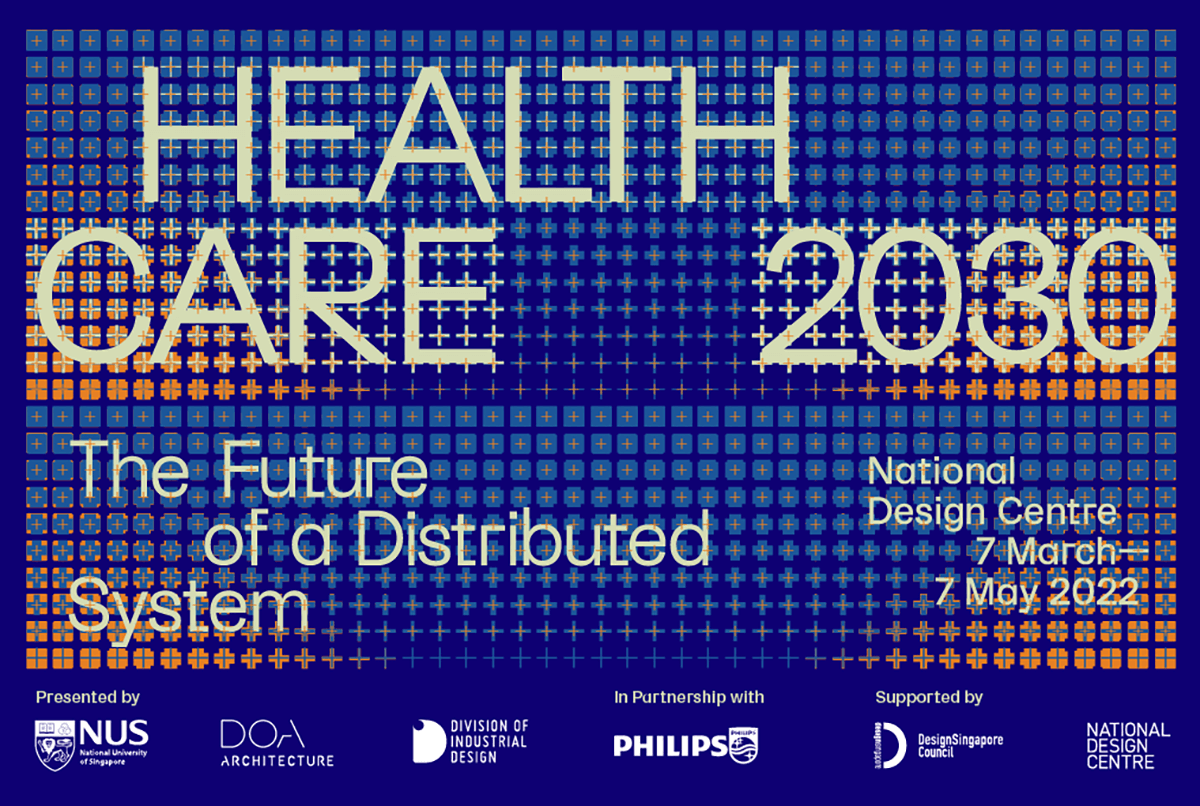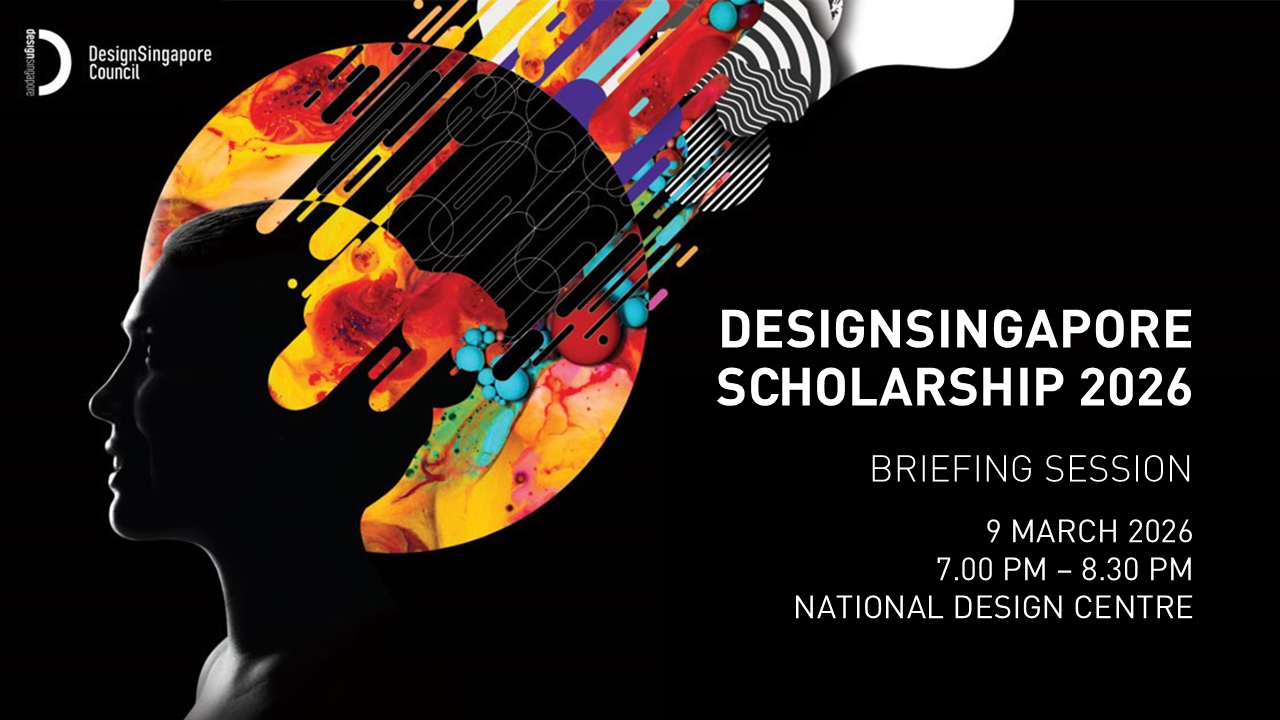HEALTHCARE 2030: The Future of a Distributed System

Event details
-

Date and Time
08 Mar – 07 May 2022
09:00 AM – 09:00 PM
-

Location
National Design Centre, Design Gallery 1
-

Event Fee
Free
Details
What is the future of a distributed healthcare system in Singapore?
In 2021, students from the National University of Singapore’s Division of Industrial Design and Department of Architecture worked in teams to address the challenge posed by Philips APAC Centre. Professors from the National University of Singapore’s Division of Industrial Design and Department of Architecture jointly taught the design studio with experienced designers from Philips.
Students embarked on a journey of collaborative learning, interdisciplinary thinking, research, and design over a thirteen-week semester. They explored healthcare as a distributed system, speculated the evolution of healthcare environments influenced by changing societal behaviours, cultural norms, accessibility, and new care delivery systems supported by emerging technologies.
The exhibition presents five thought-provoking design solutions across different scales and experiential touchpoints.
1. HealthAir (Joel Ng Jo-Wei, Jerry Yee Heng Jie, Ong Kah Min, and Anabelle Chan Pei En) imagines a network of health systems amongst countries with medical facilities attached to airports. The project rethinks the current medical tourism and global health model by lowering the barriers to quality healthcare and greater access to affordable and high-quality services. A medical wing dedicated to the treatment and rehabilitation facilities for regional patients is introduced in Terminal 4 of Changi Airport, while a medical app improves a patient’s onboarding process and integrates a seamless service flow between patients, healthcare providers, and the architecture of the facility.
2. Diabetic Care Hub (Joanne Wong Jinn Yi, Sharmaine Lee Pui Fong, Prasanth Kumaar Kunasilan and Chin Kar Fai) speculates a decentralised diabetic care system through the introduction of a distributed network of stations and facilities within Singapore’s Park Connector Network. The hubs establish an island-wide interconnected healing ecosystem that seamlessly integrates preventive measures and care management into our everyday lives. AI and augmented reality technology inform, incentivise and promote active living and personal involvement in one’s overall care management.
3. Forget Us Not (Wang Yisang, Yang Qing, Wong Yu Ting Ashlyn and Jonathan Lau) offers an integrated system of care surrounding dementia that includes detection and diagnosis of the different stages of dementia. The project enables one to lead as normal a life as possible before the onset of late-stage dementia by addressing the multiple design scales, starting from the interior of an HDB apartment to public spaces. The use of sensors and digitally enhanced materials for detection and wayfinding adds an infrastructural layer to the design and the creation of a dementia-friendly neighbourhood.
4. Fysio (Jaslynn Ho, Huo Yujia, Nathaniel Ng Wei Tun and Loo Zi Ling) advocates a shared responsibility for a future healthcare system that focuses on physiotherapy and promoting a healthy lifestyle. The team discovers that most residents are only a 5 to 10-minute walk from a community park through their research. By situating physiotherapy sessions and facilities in a park setting, the project aims to incorporate biophilic design principles in the design of healthcare facilities featuring AI technologies, and mobile robots to enhance the delivery of healthcare services and cultivate a social support network among healthcare providers, patients, and their family members.
5. The Nest (Chin Wen Xuan, Ow Yeong Jun Jie, Koh Bei Ning and Sim Lee Ting) envisions a future where architecture, products, and services become an integrated, data-driven, and distributed system for depression and mental health. Redesigned spaces and carefully curated landscaped pathways lined with pavilions throughout the housing estate provide varying degrees of privacy catering to small group meetings and personal conversations. The project promotes mental health wellbeing and identifies early symptoms of depression. The combination of data, sensors, haptic, and sensorial design aids individuals through a supportive recovery journey.
Organiser
Presented by: Department of Architecture and Division of Industrial Design, National University of Singapore
Supported by: DesignSingapore Council and the National Design Centre
In partnership with: Philips Experience APAC Centre
NUS Department of Architecture
NUS Architecture is Asia’s leading school of design, architecture, landscape and urbanism. Led by a multidisciplinary and international faculty, we champion design excellence through a vision of ‘Architecture for Asia’. We advance impactful architectural solutions in the heart of Asia. Our design and research respond specifically to the challenges of living on the equator. We offer six different programmes, including landscape architecture, urban design, urban planning and integrated sustainable design. Our faculty and alumni comprise award winners including the Singapore President*s Design Award, World Architecture Festival Awards (WAF), International Architectural Award, Royal Institute of British Architects (RIBA) Awards, American Institute of Architects Awards (AIA), Society of American Registered Architect Awards (SARA) and Architectural Design Awards Singapore (SIA).
NUS Division of Industrial Design
The Division of Industrial Design (DID) is the first university-level department in Singapore to offer degree programmes in Industrial Design. The B.A. (Hons), M.A. and Ph.D. (ID) are highly selective programmes, where students are taught a potent combination of design thinking and innovation methods, with a clever mix of artistic, humanistic, technological and business disciplines. Our graduates are equipped to take up highly valuable and versatile roles as creative designers, innovators, entrepreneurs, and leaders of change. DID is where innovations are pushed to the next level. Our vision is to make life better through design; to equip students with trans-disciplinary skills and thinking processes required to find unmet needs, to solve complex problems involved in creating viable new products, experiences, interfaces and environments. While based solidly on good functionality and form, our approach equips student designers to go beyond these basics of function and aesthetics, into the realm of extreme sensitivity towards human perception, behaviour, emotions, psychology, culture, and habits; so that the innovations from DID students are not just well-intended ideas to fix problems, but holistic solutions that people love to use, and businesses are eager to invest in. In 10 years since its inception in 1999, NUS Division of Industrial Design (DID) has been ranked among the world’s top 30 design schools by iF (International Forum Design) Germany, in 2009.
Contact
Name: Kah Min
Email: [email protected]



